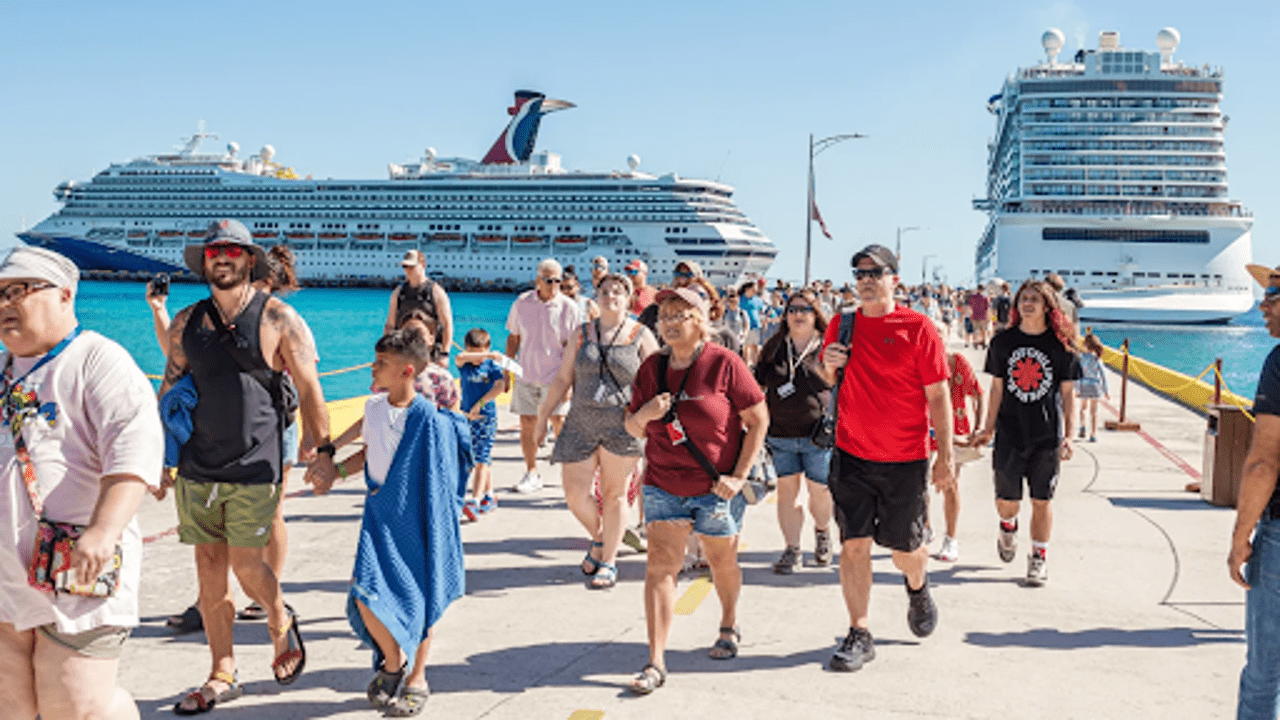
Mexico is a top choice for cruise travelers. Passengers from two different ships are seen disembarking at Costa Maya, located on the Yucatán Peninsula. Getty Images
Next year, visitors to Mexico via cruise ships may face higher costs. The Mexican government is set to introduce a $42 immigration fee for each passenger aboard ships docking in the country. This new fee will apply even to passengers who choose to stay on the ship and not disembark, as the immigration law mandates that the Mexican Immigration Institute will issue a "collective visa" to every person on board.
The announcement of this fee has caused concern among various tourism groups, especially the Mexican Association of Naval Agents (AMANAC). The association argues that this fee, when combined with an existing $5 charge from local states, could make Mexican cruise destinations among the most expensive worldwide. They have urged the government to reconsider the new fee, suggesting it could hurt Mexico's cruise industry. The concern is that travelers may opt for other Caribbean destinations that remain more affordable, leading to a reduction in the number of cruise passengers to Mexico. Currently, passengers on cruise ships are not required to pay immigration fees as they are considered "in transit."
This fee, which has already been approved by the Mexican Congress, is scheduled to take effect on January 1. The fee’s revenue will be used primarily to fund the Mexican army, with two-thirds of the collected amount allocated for this purpose. This has led to concerns about the potential impact on the tourism sector. According to AMANAC, if the fee is enforced, Mexico could see a loss of up to 10 million cruise passengers and over 3,300 ship calls in 2025 alone.
Mexican President Claudia Sheinbaum defended the new charge, explaining that it is not a new tax but a modification of existing fees, which she said were adjusted due to inflation. She emphasized that discussions are ongoing between the affected agencies to ensure a smoother transition for the tourism industry.
However, reactions to the new fee continue to unfold. Michele Paige, CEO of the Florida-Caribbean Cruise Association, which represents cruise lines in the U.S., Latin America, and the Caribbean, expressed concern that many 2025 cruise bookings have already been made and that companies might be reluctant to visit destinations that impose unexpected fees. Despite President Sheinbaum’s assurance that the change will be gradual and that federal officials are working with the cruise industry, Paige said they had not yet been contacted by the relevant authorities.
On the other hand, Sergio Gonzales Rubiera, the president of The Travel Agents Association in Cozumel, Mexico’s main cruise destination, is not overly worried about the new fee. While he acknowledges that some cruise lines might skip Mexican ports in protest, he believes most will incorporate the new fee into their future trip pricing. Rubiera also expressed disappointment that most of the collected fee money would go to the federal government rather than benefiting local communities, especially those that rely on tourism.
This new fee comes at a time when the Mexican government has been expanding the role of the military, with former President Andrés Manuel López Obrador overseeing projects such as the Tren Maya, a series of new train routes linking southeastern Mexico’s tourist hotspots.















